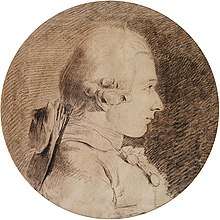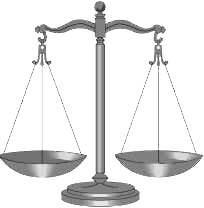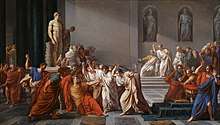
Successful crime goes by the name of virtue. ~ Seneca
_-_Edward_Carpenter.jpg)
The man who attempted to retain for himself land or goods, or who fenced off a portion of the common ground and—like the modern landlord—would allow no one to till it who did not pay him a tax—was a criminal of the deepest dye. Nevertheless the criminals pushed their way to the front, and have become the respectables of modern society. ~ Edward Carpenter

The stinking puddle from which usury, thievery and robbery arises is our lords and princes. They make all creatures their property—the fish in the water, the birds in the air, the plant in the earth must all be theirs. Then they proclaim God's commandments among the poor and say, "You shall not steal." ~ Thomas Müntzer

Theft is only punished because it violates the right of property; but this right is itself nothing in origin but theft. ~ Donatien Alphonse François de Sade

If the church ... does not make God's liberation of the oppressed central in its mission and proclamation, how can it rest easy with a condemned criminal as the dominant symbol of its message? ~ James H. Cone

When the sentence for a crime is not quickly carried out, people's hearts are filled with schemes to do wrong. ~ Kohelet

From a single crime know the nation. ~ Virgil

All crime in the end is the crime of the community. ~ H. G. Wells
Crime in the field of sociology is the breach of a rule or law for which some governing authority or force may ultimately prescribe a punishment. The word crime originates from the Latin crimen (genitive criminis), from the Latin root cernō and Greek κρινω = "I judge". Originally it meant "charge (in law), guilt, accusation".
Quotes
- I have never heard of any youngster going wrong, turning to crime, because of the movies. It simply isn't possible. Our relation to crime is, in a sense, the same as the prison warden's. We don't create it. We deal with it after it has happened, and we always make the criminal look bad.
When I went to college, I studied under a professor of geology who wanted to make us understand how the different peoples of the world got the way they are, their racial tendencies and characteristics, dark-skinned Africans and fair-haired Swedes. He cited geography and climate and food and opportunities, and he summed it all up with the phrase: "We are what we are largely because we are where we are."
The proof of the argument can be found in the Uniform Crime Reports and the Department of Justice. The spot maps of cities show it. Not so long ago, I examined some maps showing juvenile delinquency, diptheria, tuberculosis and murder quotients in a number of cities from New Orleans to Los Angeles. The maps all looked alike. Disease, crime and delinquency were invariably grouped in the same parts of the cities — in the slum districts. That is the cause of crime, not the motion picture.- Humphrey Bogart, “Censorship: Jimmy Walker Never Heard of a Book Seducing a Dame but Bluenoses are Still on the Trail of our Films”, Hollywood Reporter, (Oct 1941); republished in “When Humphrey Bogart Tackled Movie Censorship in 1941”, Hollywood Reporter, (2/27/2018).
- There's not a crime
But takes its proper change out still in crime
If once rung on the counter of this world.- Elizabeth Barrett Browning, Aurora Leigh (1856), Book III, line 870.
- Society already understands that the criminal is not he who washes our dirty linen in public, but he who dirties the linen.
- Vladimir Bukovsky (b.1932), Russian author. Stated on 5 January, 1972. Quoted in Radio Times magazine, 19 September, 1977.
- Nor all that heralds rake from coffin'd clay,
Nor florid prose, nor honied lies of rhyme,
Can blazon evil deeds, or consecrate a crime.- Lord Byron, Childe Harold's Pilgrimage, Canto I (1812), Stanza 3.
- The poacher … is asserting a right (and an instinct) belonging to a past time—when for hunting purposes all land was held in common. … In those times private property was theft. Obviously the man who attempted to retain for himself land or goods, or who fenced off a portion of the common ground and—like the modern landlord—would allow no one to till it who did not pay him a tax—was a criminal of the deepest dye. Nevertheless the criminals pushed their way to the front, and have become the respectables of modern society.
- Edward Carpenter, Defence of Criminals: A Criticism of Morality (1889)
- La pauvreté met le crime au rabais.
- Poverty puts crime at a discount.
- Nicolas Chamfort, Maximes et Pensées (published 1795); CCCXII.
- Alternately translated as: "Poverty sets a reduced price on crime"; in The Viking Book of Aphorisms (1962).
- There are few better measures of the concern a society has for its individual members and its own well being than the way it handles criminals.
- Ramsey Clark keynote address, American Correctional Association conference, Miami Beach, Florida (August 20–25, 1967); reported in Proceedings of the Ninety-Seventh Annual Congress of Correction of the American Correctional Association (1968), p. 4; republished in Respectfully Quoted: A Dictionary of Quotations (1989).
- If the church ... does not make God's liberation of the oppressed central in its mission and proclamation, how can it rest easy with a condemned criminal as the dominant symbol of its message?
- James H. Cone, Speaking the Truth: Ecumenism, Liberation, and Black Theology (1986), p. 6.
- Guide the people by law, subdue them by punishment; they may shun crime, but will be void of shame. Guide them by example, subdue them by courtesy; they will learn shame, and come to be good.
- Confucius, Analects 2.3
- The real significance of crime is in its being a breach of faith with the community of mankind.
- Joseph Conrad, Lord Jim (1900), Ch. 14.
- But many a crime deemed innocent on earth
Is registered in Heaven; and these no doubt
Have each their record, with a curse annex'd.- William Cowper, The Task (1785), Book VI, line 439.
- The most difficult crime to track is the one which is purposeless.
- Sir Arthur Conan Doyle (1859-1930), British crime novelist. Sherlock Holmes, in "The Naval Treaty," The Memoirs of Sherlock Holmes (1892).
- It is written ' Thou shalt not kill,' so because he has killed, are we to kill him? No, that's impossible.
- Fyodor Dostoyevsky, The Idiot: A Novel in Four Parts (1916), p. 19.
- Commit a crime, and the earth is made of glass.
- Ralph Waldo Emerson (1803-1882), U.S. essayist, philosopher, poet. "Compensation," Essays, First Series (1841).
- Criminals are a superstitious cowardly lot.
- The Batman Wars Against the Dirigible of Doom, Detective Comics #33 (November 1939), written by Bill Finger.
- Crime is naught but misdirected energy. So long as every institution of today, economic, political, social, and moral, conspires to misdirect human energy into wrong channels; so long as most people are out of place doing the things they hate to do, living a life they loathe to live, crime will be inevitable, and all the laws on the statutes can only in crease, but never do away with, crime.
- Emma Goldman, "Anarchism, What it Really Stands For", Anarchism and Other Essays (1917).
- Never think that war, no matter how necessary, no matter how justified, is not a crime.
- Ernest Hemingway, Introduction to "Treasury for the Free World" by Ben Raeburn, 1946.
- Plan harm for another and harm yourself most,
the evil we hatch always comes home to roost.- Hesiod, Works and Days, as translated by Stanley Lombardo (1993), line 305
- Nine-tenths of our crimes an' calamities are made possible by th' automobile. It has unleashed all th' pent-up criminal tendencies o' th' ages. It's th' central figure in murders, hold-ups, burglaries, accidents, elopements, failures an' abscondments. It has well nigh jimmed th' American home.... No girl is missin' that wuzn' last seen steppin' in a strange automobile.... An' ther hain't a day rolls by that somebuddy hain't sellin' ther sewin' machine, or ther home, or somethin' t' pay on an automobile.... Maybe th' jails an' workhouses are empty, but that's not because th' world is gittin' better. It's because all th' criminals escape in automobiles.
- Kin Hubbard writing for his character, "th' Hon. Ex.-Editur Cale Fluhart."
Quoted in Norris W. Yeats, The American Humorist: Conscience of the Twentieth Century, Ames, Iowa: Iowa State University Press, 1964, p. 107.
- Kin Hubbard writing for his character, "th' Hon. Ex.-Editur Cale Fluhart."
- My servant ... was numbered with the transgressors.
- When the sentence for a crime is not quickly carried out, people's hearts are filled with schemes to do wrong.
- The unpunished crime is never regretted. We weep over the consequence, not over the fault.
- Letitia Elizabeth Landon, Heath's Book of Beauty, 1833 (1832), 'An Evening at Lucy Ashton’s'
- Any time you think of a decent crime, there are fifty ways to fuck it up. If you can think of twenty-five, you're a genius.
- Teddy Lewis, played by Mickey Rourke, in Body Heat, screenplay by Lawrence Kasdan.
- "Why? What crime has he committed?" asked Pilate. But they shouted all the louder, "Crucify him!"
- Mark 15:4
- The study of crime begins with the knowledge of oneself. All that you despise, all that you loathe, all that you reject, all that you condemn and seek to convert by punishment springs from you.
- Henry Miller (1891-1980), U.S. playwright. 'The Soul of Anaesthesia,' The Air-Conditioned Nightmare (1945).
- The prisoner is not the one who has committed a crime, but the one who clings to his crime and lives it over and over.
- Henry Miller (1891-1980), U.S. playwright. Sexus, chapter 14 (1949).
- The stinking puddle from which usury, thievery and robbery arises is our lords and princes. They make all creatures their property—the fish in the water, the birds in the air, the plant in the earth must all be theirs. Then they proclaim God's commandments among the poor and say, "You shall not steal."
- Thomas Müntzer, Letter to the Princes, as cited in Transforming Faith Communities: A Comparative Study of Radical Christianity, p. 173
- People seem good while they are oppressed, but they only wish to become oppressors in their turn: life is nothing but a competition to be the criminal rather than the victim.
- Bertrand Russell, in a letter to Ottoline Morrell, 17 December 1920.
- Rursus prosperum ac felix scelus virtus vocatur; sontibus parent boni, ius est in armis, opprimit leges timor.
- Prosperous and successful crime goes by the name of virtue; good men obey the bad, might is right and fear oppresses law.
- Seneca, Hercules Furens (The Madness of Hercules), lines 251-253 (Amphitryon)
- Foul deeds will rise,
Though all the earth o'erwhelm them, to men's eyes.- William Shakespeare, Hamlet (1600-02), Act I, scene 2, line 257.
- If little faults, proceeding on distemper,
Shall not be wink'd at, how shall we stretch our eye
When capital crimes, chew'd, swallow'd, and digested,
Appear before us?- William Shakespeare, Henry V (c. 1599), Act II, scene 2, line 54.
- Between the acting of a dreadful thing
And the first motion, all the interim is
Like a phantasma, or a hideous dream.- William Shakespeare, Julius Cæsar (1599), Act II, scene 1, line 63.
- Beyond the infinite and boundless reach
Of mercy, if thou didst this deed of death,
Art thou damn'd, Hubert.- William Shakespeare, King John (1598), Act IV, scene 3, line 117.
- Tremble, thou wretch,
That has within thee undivulged crimes,
Unwhipp'd of justice.- William Shakespeare, King Lear (1608), Act III, scene 2, line 51.
- There shall be done
A deed of dreadful note.- William Shakespeare, Macbeth (1605), Act III, scene 2, line 43.
- Theft is only punished because it violates the right of property; but this right is itself nothing in origin but theft.
- Donatien Alphonse François de Sade, Juliette (1797), p. 118
- From a single crime know the nation.
- Virgil [Publius Vergilius Maro] (70-19 B.C.), Roman poet. Aeneid, Book. 2, line 65.
- Crime and bad lives are the measure of a State's failure, all crime in the end is the crime of the community.
- H. G. Wells, A Modern Utopia (1905), Chapter 5; reprinted in The Works of H.G. Wells, Volume 9 (1925).
- The sole means of ridding man of crime is to rid him of freedom.
- Yevgeny Zamyatin We (1921).
Hoyt's New Cyclopedia Of Practical Quotations
- Quotes reported in Hoyt's New Cyclopedia Of Practical Quotations (1922), p. 148-49.
- Non nella pena,
Nel delitto è la infamia.- Disgrace does not consist in the punishment, but in the crime.
- Vittorio Alfieri, Antigone, I. 3.
- Il reo
D'un delitto è chi'l pensa: a chi l' ordisce
La pena spetta.- The guilty is he who meditates a crime; the punishment is his who lays the plot.
- Vittorio Alfieri, Antigone, II. 2.
- Oh! ben provvide il cielo,
Ch' uom per delitto mai lieto non sia.- Heaven takes care that no man secures happiness by crime.
- Vittorio Alfieri, Oreste, I. 2.
- A man who has no excuse for crime, is indeed defenceless!
- Edward Bulwer-Lytton, The Lady of Lyons, Act IV, scene 1.
- Le crime fait la honte et non pas l'échafaud.
- The crime and not the scaffold makes the shame.
- Pierre Corneille, Essex, IV. 3. Quoted by Charlotte Corday in a letter to her father after the murder of Marat.
- C'est plus qu'un crime, c'est une faute.
- It is worse than a crime, it is a blunder.
- Joseph Fouché, As quoted by himself in his Memoires, original Ed., 1824. Referring to the murder of the Due Enghien. Fouché's sons deny that it originated with their father. Quoted by others as "C'est pis qu'un crime," and "C'estoit pire qu'un crime." (See Notes and Queries, Aug. 14, 1915, p. 123. Aug. 28, p. 166).
- Crime is not punished as an offense against God, but as prejudicial to society.
- James Anthony Froude, Short Studies on Great Subjects, Reciprocal Duties of State and Subjects.
- Every crime destroys more Edens than our own.
- Nathaniel Hawthorne, Marble Faun, Volume I, Chapter XXIII.
- Deprendi miserum est.
- It is grievous to be caught.
- Horace, Satires, Book I. 2. 134.
- A crafty knave needs no broker.
- Ben Jonson, quoted in Every Man in his Humour; also in Taylor's London to Hamburgh.
- 'Tis no sin love's fruits to steal;
But the sweet thefts to reveal;
To be taken, to be seen,
These have crimes accounted been.- Ben Jonson, Volpone, Act III, scene 6.
- Se judice, nemo nocens absolvitur.
- By his own verdict no guilty man was ever acquitted.
- Juvenal, Satires, XIII. 2.
- Multi committunt eadem diverso crimina fato;
Ille crucem scleris pretium tulit, hic diadema.- Many commit the same crimes with a very different result. One bears a cross for his crime; another a crown.
- Juvenal, Satires, XIII. 103.
- Nam scelus intra se tacitum qui cogitat ullum,
Facti crimen habet.- For whoever meditates a crime is guilty of the deed.
- Juvenal, Satires, XIII. 209.
- Non faciat malum, ut inde veniat bonum.
- You are not to do evil that good may come of it.
- Law Maxim.
- Solent occupationis spe vel impune quædam scelesta committi.
- Wicked deeds are generally done, even with impunity, for the mere desire of occupation.
- Ammianus Marcellinus, Annales, XXX. 9.
- Pœna potest demi, culpa perennis erit.
- The punishment can be remitted; the crime is everlasting.
- Ovid, Epistolæ Ex Ponto, I. 1. 64.
- Factis ignoscite nostris
Si scelus ingenio scitis abesse meo.- Overlook our deeds, since you know that crime was absent from our inclination.
- Ovid, Fausti, Book III. 309.
- Ars fit ubi a teneris crimen condiscitur annis.
- Where crime is taught from early years, it becomes a part of nature.
- Ovid, Heroides, IV. 25.
- Le crime d'une mère est un pesant fardeau.
- The crime of a mother is a heavy burden.
- Jean Racine, Phèdre, III. 3.
- With his hand upon the throttle-valve of crime.
- Lord Salisbury, speech in House of Lords, 1889.
- Prosperum ac felix scelus
Virtus vocatur; sontibus parent boni;
Jus est in armis, opprimit leges timor.- Successful crime is dignified with the name of virtue; the good become the slaves of the impious; might makes right; fear silences the power of the law.
- Seneca the Younger, Hercules Furens, CCLI.
- Nullum caruit exemplo nefas.
- No crime has been without a precedent.
- Seneca the Younger, Hippolytus, DLIV.
- Scelere velandum est scelus.
- One crime has to be concealed by another.
- Seneca the Younger, Hippolytus, DCCXXI.
- Cui prodest scelus,
Is fecit.- He who profits by crime is guilty of it.
- Seneca the Younger, Medea, D.
- Ad auctores redit
Sceleris coacti culpa.- The guilt of enforced crimes lies on those who impose them.
- Seneca the Younger, Troades, DCCCLXX.
- Qui non vetat peccare, cum possit, jubet.
- He who does not prevent a crime when he can, encourages it.
- Seneca the Younger, Troades, CCXCI.
- Dumque punitur scelus,
Crescit.- While crime is punished it yet increases.
- Seneca the Younger, Thyestes, XXXI.
- Amici vitium ni feras, facis tuum.
- If you share the crime of your friend, you make it your own.
- Syrus, Maxims.
- Du repos dans le crime! ah! qui peut s'en flatter.
- To be at peace in crime! ah, who can thus flatter himself.
- Voltaire, Oreste, I. 5.
- La crainte suit le crime, et c'est son châtiment.
- Fear follows crime and is its punishment.
- Voltaire, Semiramis, V. 1.
- Yet each man kills the thing he loves,
By each let this be heard,
Some do it with a bitter look,
Some with a flattering word,
The coward does it with a kiss,
The brave man with a sword.- Oscar Wilde, Ballad of Reading Gaol.
Joan Petersilia, "Racial Disparities in the Criminal Justice System", National Institute of Corrections, Department of Justice, (June 1983)
- Earlier studies have shown that arrests depend heavily on witnesses' or victims' identifying or carefully describing the suspect (Greenwood, Petersilia, Chaiken, 1978). Prosecutors may have a more difficult time making cases against minorities "beyond a reasonable doubt" because of problems with victim and witness identifications. Frequently, witnesses or victims who were supportive at the arrest stage become less cooperative as the' case proceeds. Defenders of the system argue that the statistics do not lie, and that the system does not discriminate but simply reacts to the prevalence of crime in the black community.
- Joan Petersilia, "Racial Disparities in the Criminal Justice System", National Institute of Corrections, Department of Justice, (June 1983), p. xxiii
- When the' crime is murder, forcible rape, robbery, or aggravated assault, a judge has less latitude in deciding about probation, sentence length, or whether the sentence will be served in jail or prison-no matter what color a man is. As we move down the line to lesser crimes, disparity emerges. The most striking example is larceny; Blacks make up only 30 percent of the arrest population, but 51 percent of the prison population. Why the disparity for these crimes? One explanation may be that judges can exercise more discretion in dealing with offenders convicted of these crimes.
- Joan Petersilia, "Racial Disparities in the Criminal Justice System", National Institute of Corrections, Department of Justice, (June 1983), p. 2
- There were few' clear trends, but statistically significant racial differences. Hispanics strongly preferred knives and were more likely to report doing grievous harm to their victims. It seems possible that this behavior could legitimately lead to harsher sentences and longer time served. Blacks were much less likely than Hispanics to use a knife, and less likely than whites to use a gun. Indeed, when the study combined all crime types and looked at the overall percent of racial groups armed during a crime, there was only one statistically significant difference: Blacks were less likely to be armed in a burglary. Nevertheless, blacks make up a larger percent of the prison than of the arrest population for burglary.
- Joan Petersilia, "Racial Disparities in the Criminal Justice System", National Institute of Corrections, Department of Justice, (June 1983), p. 88.
- For critics of the criminal justice system, the arrest and imprisonment rates for blacks and other minorities suggest that the system discriminates against those groups. They argue, for example, that blacks, who make up 12 percent of the national population, could not possibly commit 48 percent of the crime: Yet that is exactly what arrest and imprisonment rates imply about black criminality. Defenders of the system argue that the arrest and imprisonment rates do not lie; the system simply reacts to the prevalence of crime in the black community. As we have noted repeatedly, prior research has not. settled this controversy. For every study that finds discrimination in arrests, convictions, sentencing, prison treatment, or parole, another denies it.
- Joan Petersilia, "Racial Disparities in the Criminal Justice System", National Institute of Corrections, Department of Justice, (June 1983), p. 89.
- A minority male is almost four times more likely than a white male to have an index arrest in his lifetime: One in every two nonwhite males in large U.S. cities can expect to have at least one index arrest. However, the RIS data indicate that, once involved in crime, whites and minorities in the sample have virtually the same annual crime commission rates. This accords with Blumstein and Graddy's (1981) finding that the recidivism rate for index offenses is approximately .85 for both whites and nonwhites. Thus, the data suggest that large racial differences in aggregate arrest rates must be attributed primarily to differences in involvement, and not to different patterns among those who do participate. Under these circumstances, any empirically derived indicators of recidivism should target a roughly equal number of whites and minorities. In other words, even if recidivism among whites had different causes or correlates than recidivism among non-whites, they should at least balance one another. They should not consistently identify nonwhites as more appropriate candidates for more severe treatment.
- Joan Petersilia, "Racial Disparities in the Criminal Justice System", National Institute of Corrections, Department of Justice, (June 1983), p. 98.
Attributed
- If England treats her criminals the way she has treated me, she doesn't deserve to have any.
- Oscar Wilde, reported in Evan Esar, 20,000 quips & quotes (Barnes & Noble Publishing, April 1995), p. 193. ISBN 1566195292.
- Poverty is the mother of crime.
- Marcus Aurelius, reported in Robert D. Ramsey, Well Said, Well Spoken (Corwin Press, 2001), p. 30. ISBN 0761977708.
- We don't seem able to check crime, so why not legalize it and then tax it out of business?
- Will Rogers, reported in reported in Evan Esar, 20,000 quips & quotes (Barnes & Noble Publishing, April 1995), p. 193. ISBN 1566195292.
- The doctrine that the cure for the evils of democracy is more democracy is like saying that the cure of crime is more crime.
- H. L. Mencken, reported in Evan Esar, 20,000 quips & quotes (Barnes & Noble Publishing, April 1995), p. 211. ISBN 1566195292.
- Whatever opens opportunity and hope will help to prevent crime and foster responsibility.
- Lyndon B. Johnson, reported in Ashton Applewhite, Tripp Evans, and Andrew Frothingham, And I Quote: The Definitive Collection of Quotes, Sayings, and Jokes for the Contemporary Speechmaker (St. Martin's Press, 2003), p. 27. ISBN 0312307446.
- Hungry men have no respect for law, authority or human life.
- Marcus Garvey, reported in Ashton Applewhite, Tripp Evans, and Andrew Frothingham, And I Quote: The Definitive Collection of Quotes, Sayings, and Jokes for the Contemporary Speechmaker (St. Martin's Press, 2003), p. 84. ISBN 0312307446.
- Anyone who takes it on himself, on his own authority, to break a bad law, thereby authorizes everyone else to break the good ones.
- Denis Diderot, reported in Ashton Applewhite, Tripp Evans, and Andrew Frothingham, And I Quote: The Definitive Collection of Quotes, Sayings, and Jokes for the Contemporary Speechmaker (St. Martin's Press, 2003), p. 84. ISBN 0312307446.
- One man's justice is another's injustice; One man's beauty another's ugliness; One man's wisdom another's folly.
- Ralph Waldo Emerson, reported in Hélio Gomes, Quality Quotes (ASQ Quality Press, 1996), p. 6. ISBN 0873894073.
- Justice is truth in action.
- Benjamin Disraeli, reported in Cathy Collins Block and Susan E. Israel, Quotes to Inspire Great Reading Teachers (Corwin Press, 2006), p. 78. ISBN 1412914973.
- Crime is contagious.
- Louis Brandeis, reported in Robert D. Ramsey, Well Said, Well Spoken (Corwin Press, 2001), p. 30. ISBN 0761977708.
- The chief problem in any community cursed with crime is not the punishment of the criminal, but the preventing of the young from being trained to crime.
- W. E. B. Du Bois, reported in Robert D. Ramsey, Well Said, Well Spoken (Corwin Press, 2001), p. 30. ISBN 0761977708.
See also
External links
| Find more information on Crime by searching Wikiquote's sister projects | |
|---|---|
| Encyclopedia articles from Wikipedia | |
| Dictionary definitions from Wiktionary | |
| Textbooks from Wikibooks | |
| Source texts from Wikisource | |
| Images and media from Commons | |
| News stories from Wikinews | |
| Learning resources from Wikiversity | |
This article is issued from
Wikiquote.
The text is licensed under Creative
Commons - Attribution - Sharealike.
Additional terms may apply for the media files.